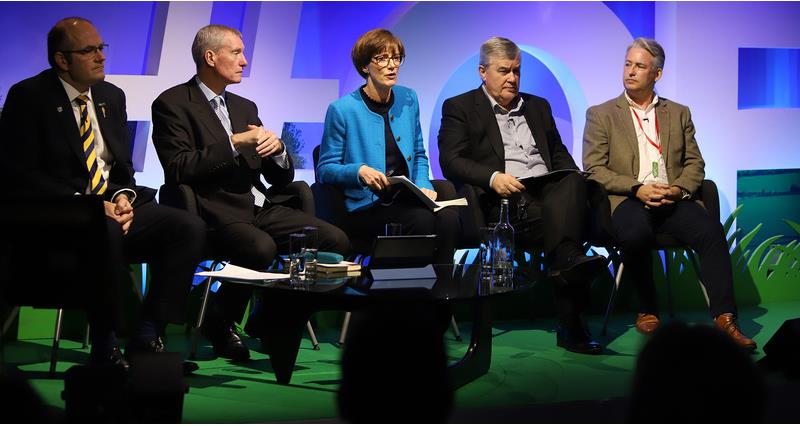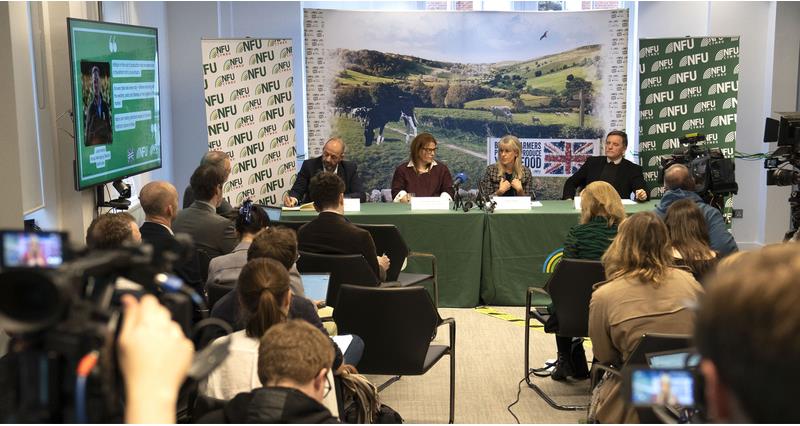The report â â states that years of âpermacrisisâ fuelled by Brexit, the war in Ukraine, the Covid-19 pandemic and soaring inflation rates have left farmingâs confidence and bank balances at an all-time, unsustainable low.
Ged Futter, Director of Retail Minds Limited and author of the report said these events have exposed âpre-existing and fundamental weaknesses in the supply chainâ meaning that âthe level of risk is at an all-time highâ.
Mr Futter has more than 30 years of experience in the retail sector, 15 years of which were as a senior buyer in the world's largest grocery retail company. The report is based on more than 40 interviews with business owners across fresh produce, eggs, poultry, pork, importers, frozen food manufacturers and various consultants.Â
Key findings include:
- The risk versus reward imbalance is forcing farmers out of production; retailers need to share the risk.
- Retailer practices need to change â long term trade agreements, inexperienced buyers and burdensome audits are damaging suppliersâ profit and partnerships.
- Farmersâ accounting and negotiating skills need improvement.
Read: Supporting fairness in the supply chain â member toolkit.
Mr Futter explained that risk vs reward came up consistently for farmers and growers: âThe risk vs reward ratio is now out of kilter, more farmers are asking is it worth doing?â
The report found that farmers are increasingly leaving the sector â glasshouses are closing and orchards are being grubbed.
âWe hear very regularly that food security has risen right up the agenda but I think weâve got a wonderful opportunity this year to make sure all political parties demonstrate that they recognise the strategic importance of domestic food production.â
NFU Deputy President Tom Bradshaw
Retailer tactics need addressing
The report identified fixed price, long term agreements, the impact of inexperienced buyers and the audit burden as having, over the past 10 years, âsqueezed every drop of profit from many of their suppliersâ. In one business, an audit was conducted in 42 weeks of the year, with the average cost of an audit with a UK retailer found to between ÂŁ2000-ÂŁ5000.
âRetailers would rather have empty shelves then break these deals,â Mr Futter said.
The report calls for a change of mindset from all stakeholders. It suggests ways in which risk can be better redistributed across the supply chain, identifying long-term agreements with built in price mechanisms as a âkey toolâ for reducing risk in the future.
âQuick winsâ not working
Launching the report on the first day of the Oxford Farming Conference, Mr Futter debated the reportâs findings with a panel of experts including: NFU Deputy President Tom Bradshaw, Senior Director of Sustainable Supply chains at Asda Chris Brown, Farmer at Farmlay Eggs Robert Chapman and OFC Director Ali Capper.
NFU Deputy President Tom Bradshaw said that a âhuge amount comes down to confidenceâ when farmers are questioning whether they can afford to innovate. âIf thereâs not the confidence that youâre going to generate that profit then youâre not willing to reinvest and take that risk,â he added.
He said early adopters dealt with âan abundance of riskâ and questioned whether there is a role for the government to step in and âhelp incentivise uptake of those really early innovationsâ.
Ms Capper echoed the sentiment, adding that she would âmake a plea to government to embrace the complexity of the sectorâ and recognise that the risks differ so greatly. âWe need policymakers who can wrap their minds around that complexity and stop looking for quick soundbites and quick wins - quick wins are not working for our sector because weâre complex,â she said.
On long-term agreements, Mr Chapman explained how buyers were warned of the egg shortage: âThey didnât listen...the only thing buyers understand is when thereâs a shortage. We went back to our customers and said if you want to have UK eggs youâve got to invest in the sector.
âWe have a three-year rolling deal now. Itâs got to be fair to both parties. Weâve got that now and review the price every quarter so everything is taken into consideration.â
With a general election looming, the panellists also discussed whether politicians recognise the strategic importance of domestic food production.
NFU Deputy President Tom Bradshaw said: âThe language has certainly changed; we hear very regularly that food security has risen right up the agenda but I think weâve got a wonderful opportunity this year to make sure all political parties demonstrate that they recognise the strategic importance of domestic food production and have a real commitment to delivering more British food at home and abroad.â
Tom warned that if politicians fail to recognise this, then âthe policies we need will never be deliveredâ.
Ms Capper responded that she couldnât see this shifting âuntil food is seen as a public goodâ.



